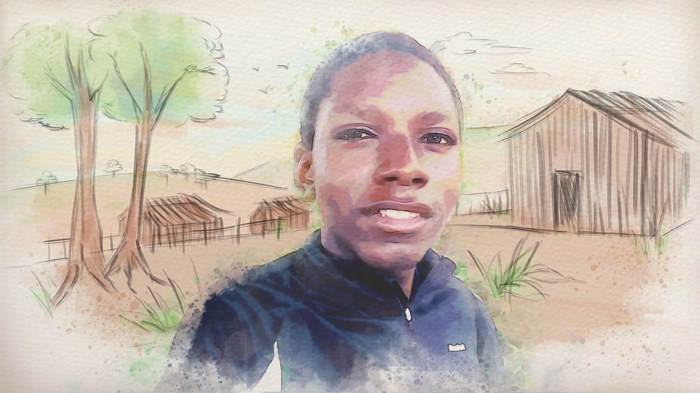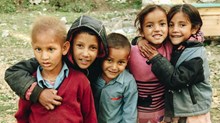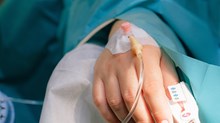Surviving in Unarmed War: A Cry for Help from the DRC

Jason is in North Kivu, DRC. In the DRC, more than 3 million children have been displaced due to fighting, half of them in the last 12 months. Particularly in the country’s eastern zone, community health centers and schools have been looted, homes burned and whole villages destroyed, forcing children and families to flee to survive. During the fighting, children have witnessed friends and family members being hacked to death.
The DRC is known to have the world’s poorest health system, a situation that has been exacerbated by the country’s battle with Ebola, cholera, and now COVID-19. Today, more than 27.3 million people, including nearly 4 million children under age 5, across the country are facing high levels of food insecurity.
All this means displaced children in the DRC have been some of the worst affected by the COVID-19 crisis. A recent report found that children's mental health needs had more than tripled since the beginning of the pandemic. Christian humanitarian org., World Vision operates a wide range of relief programs in the DRC including food aid, providing health and nutrition, education, clean water and child protection.
I want to tell you about the situation of children in my country.
Despite the adoption and ratification of laws around child protection, the situation of children in our region has not really changed.
There is insecurity here provoked by tribal conflict. Many of the children touched by conflict have lost members of their family.
Every day girls are raped, sometimes they are dying, sometimes they lose the functioning of their reproductive organs, bleed blood, or have serious injuries.
Today there are an estimated 3,500 children in armed groups where they are used as shields, sex slaves, cooks, spies, are terribly abused and encouraged to forget their families.
Orphaned children have been beaten down by their reality. They are hungry, upset, struggling mentally, and subject to the anger of relatives on whom they now depend, without access to education or any other right.
The displaced are fleeing the dangers of sleeping outside without food. Many girls are sexually exploited in brothels in order to survive and others undergo the worst forms of child labour in mining quarries and even at home.
In addition to this, there are all the diseases: malaria, typhoid, and two large epidemics -COVID-19 and Ebola. There were no schools last year, and no churches. We had cases of coronavirus in Beni, in Goma - all over. And now we have Ebola again, too.
Today 40℅ of children are economically exploited in this period of epidemics and crime, even during the lockdown. During Ebola children and parents died. Now the coronavirus has come and affects every child. Many don’t have any money; none are going to school anymore.
Since classes stopped last year, there has been a rise in kidnappings, rapes. Children are at home. People are increasingly abusing alcohol, pills and drugs, and when they do, they lose their judgement and are more susceptible to violence.
In the children’s club, we have less people now. We’ve got a system of less than 20 people, following the government rules, who go door to door, and go on broadcast radio to spread messages about coronavirus. We try to tell children how to stay safe, from the virus and from the violence.
We have experienced everything that ranks our region among the most affected regions in the world.
We cried but the crying brought nothing back
We survive in unarmed war
We overcome famine without eating
We defeat diseases without treatment.
Donors and governments must multiply their efforts, because today the problems are many more than the means. And we thank those of you who help. May God give you strength to help us.
To learn more about the situation in the DRC and how WorldVision is at work in the area, visit this report.
The Better Samaritan is a part of CT's
Blog Forum. Support the work of CT.
Subscribe and get one year free.
The views of the blogger do not necessarily reflect those of Christianity Today.






















